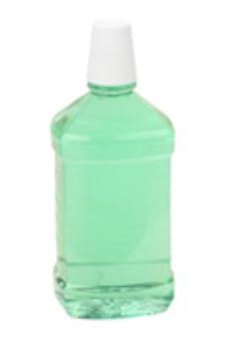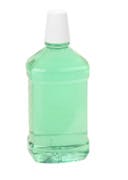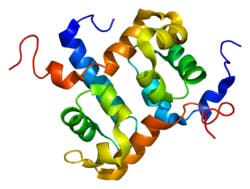Mouthwash and cancer in the news again!
The mouthwash-oral cancer connection has raised its ugly head once again.
The “newsflash” originated from a European study that observed the oral health and dental hygiene of people diagnosed with cancers of the mouth, throat, vocal chords or esophagus. The researchers found that people with the poorest oral health, including the use of dentures and bleeding tissue, had a more than doubled risk of these cancers compared with those with the best oral health.(1) Also, they found that those with the poorest dental care, including frequency of tooth brushing and visiting the dentist, had a more than double risk compared with those with the best dental care. The associations persisted after adjustment for smoking and alcohol consumption, and for other factors that could influence risk, such as socioeconomic status. However, the link between oral cancer and mouthwash is not at all clear. The association in this study was only significant when looking at very frequent use, three times a day.(1) As this is not considered normal use, the reliability of this risk estimate is diminished. There is certainly no credible evidence that mouthwash causes cancer. The results do suggest a link between poor dental hygiene and oral cancers, and reinforce the importance of maintaining good dental health. As the use of mouthwash and an increased risk of oral cancer has been a source of controversy for decades, a meta-analysis of epidemiological studies of mouthwash and oral cancer and, specifically, mouthwash containing over 25% alcohol, was completed.(2) The quantitative analysis of eighteen studies of mouthwash use and oral malignancy revealed no statistically significant associations between mouthwash use and risk of oral cancer. As well, it did not show any noteworthy trend in risk with increasing daily use, as well as no association between use of mouthwash containing alcohol and oral cancer risk.(2) Some good news has been discovered regarding the treatment of oral cancers. A repair protein, ERCC1, has been shown to be a possible prognostic biomarker for survival among patients treated with radiation after surgery.(3)
As the human papillomavirus negative (HPV) (-) squamous cell head and neck cancer (SCCHN) is associated with a poor prognosis and decreased response to treatment, one group studied the correlation between protein-based biomarkers related to DNA repair, mitotic regulators and apoptosis in a tissue microarray (TMA) of HPV(-) SCCHN.(4) The researchers concluded that four proteins that are essential in cell replication, cell death, and DNA repair could lead to improved targets for therapy against head and neck squamous cell cancers that are resistant to treatment.(4)
The definitive goal is to understand a tumor's protein signature and underlying biology so that, in the future, researchers can better understand treatments that are likely to be valuable to those with head and neck cancer.
RELATED | Studies undrescore genetic complexity of head and neck squamous cell cancers
Maria Perno Goldie, RDH, MS, is the editorial director of RDH eVillage FOCUS.



